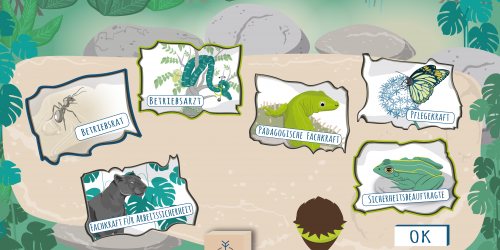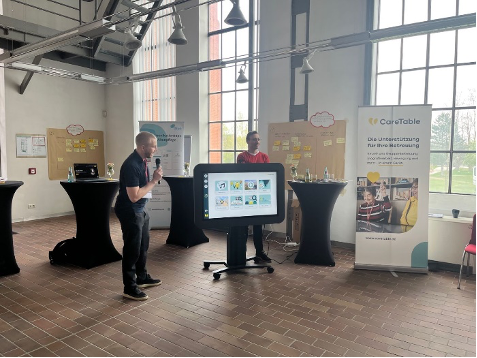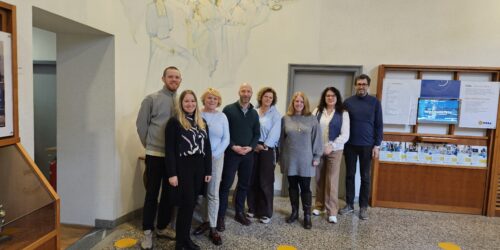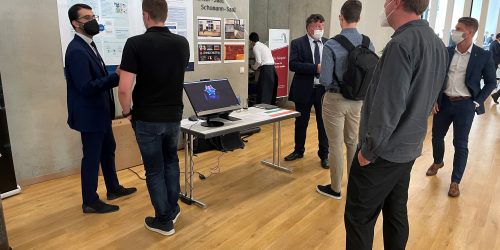Onboarding by Gamification – the study assistance system gOPAL breaks new ground in supporting the initial study phase
Willi is new to the TU Dresden. He is a freshman at the Faculty of Economics and, upon entering the university, he has immersed himself in a new world that is completely different to school. Examination regulations, internships, OPAL, Schumann Building, student council and SLUB are just a few things that he still has to understand and learn - and that in addition to his actual degree course.
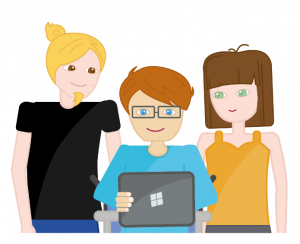 This is where the study assistance system gOPAL comes in. As part of the study success project, gOPAL is used Mobile Study Assistance System (SAS) the Media Center has established an online service for students in the introductory phase of MINT and teaching degree programs. The introductory phase of a degree program comprises the first two semesters of a degree program. Through gOPAL, students in the introductory phase of their studies continuously receive relevant information on the course of study, subject content, study strategies, and structures and support services at TU Dresden. The motivation-enhancing design of the service is achieved through gamification. Using gOPAL should bring joy to students and, almost incidentally, sensitize them to study-relevant topics beyond the theory of the chosen subject area. Whether at their desk or on the go, with gOPAL, first-year students receive helpful tips and tricks that make starting their studies easier. The topics are tailored to the needs of the departments involved in the pilot project: electrical engineering and information technology, economics, and teaching at secondary schools and higher education at vocational schools. Using the learning management system (LMS) OPAL (Online Platform for Academic Teaching and Learning) established at TU Dresden, students can gradually unlock useful information about the campus, studies and subject area in short learning game units (LSE) within department-specific gOPAL courses.
This is where the study assistance system gOPAL comes in. As part of the study success project, gOPAL is used Mobile Study Assistance System (SAS) the Media Center has established an online service for students in the introductory phase of MINT and teaching degree programs. The introductory phase of a degree program comprises the first two semesters of a degree program. Through gOPAL, students in the introductory phase of their studies continuously receive relevant information on the course of study, subject content, study strategies, and structures and support services at TU Dresden. The motivation-enhancing design of the service is achieved through gamification. Using gOPAL should bring joy to students and, almost incidentally, sensitize them to study-relevant topics beyond the theory of the chosen subject area. Whether at their desk or on the go, with gOPAL, first-year students receive helpful tips and tricks that make starting their studies easier. The topics are tailored to the needs of the departments involved in the pilot project: electrical engineering and information technology, economics, and teaching at secondary schools and higher education at vocational schools. Using the learning management system (LMS) OPAL (Online Platform for Academic Teaching and Learning) established at TU Dresden, students can gradually unlock useful information about the campus, studies and subject area in short learning game units (LSE) within department-specific gOPAL courses.
Construction
All sequences follow the same logic. Through multimedia narratives (storytelling) and stimulating interactions (e.g. quizzes), users access the knowledge repository, which contains bundled information on a topic relevant to starting their studies. The interactions take place via a personal desk - which changes over the course of the course (from here, students have access to current information and at the same time an overview of their learning progress).
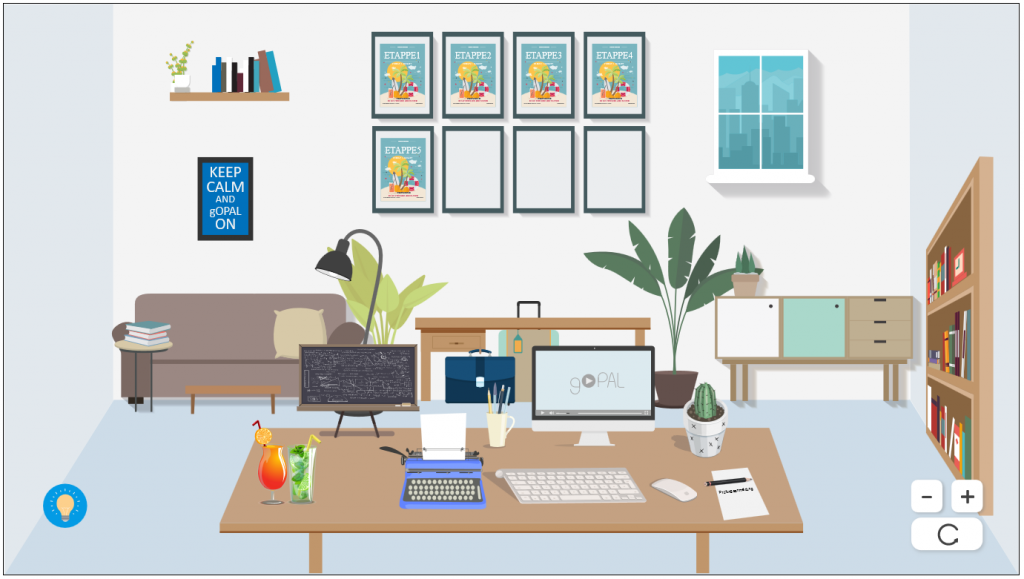
The cover story tells of a shared flat with three first-year students and an experienced student who acts as a kind of mentor. The main characters Leon, Willi and Emma experience typical initial situations in their studies, exchange their experiences with each other and support each other. The story, which is based on everyday student life, makes it easy for the student users to identify with the characters, especially those from their departments. The recognition value increases the motivation to (continue to) use gOPAL and to deal in more depth with the topics addressed.
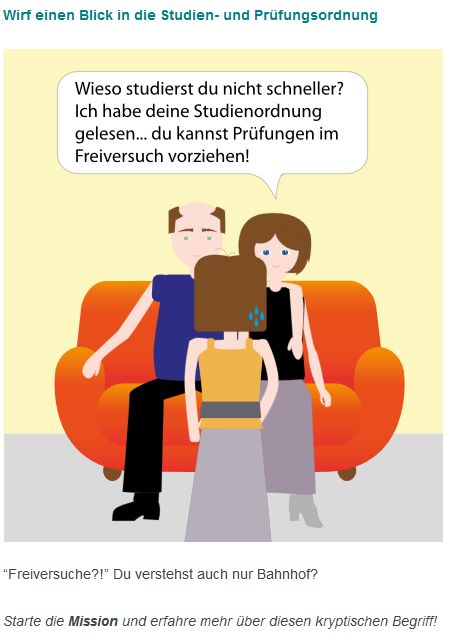
The learning units take a maximum of 10 minutes to complete and are available online at any time, which means that gOPAL can be flexibly integrated into everyday study life. So far, over 50 modules have been created, which are put together into department-specific courses (each with around 30 modules) for the first two semesters, meaning that every new student receives continuous support geared towards the ideal course of starting their studies.
evaluation
The study assistance system has been developed since 2016 and is gradually being implemented in various faculties at TU Dresden. The service is currently available in the faculties of electrical engineering/information technology, teaching, economics and computer science. From the winter semester 2020/21, the faculty of mechanical engineering will be added.
| departments | 2016/17 | 2017/18 | 2019/20 |
| Electrical Engineering/Information Technology | 83 | 93 | 92 |
| teaching profession | 71 | 61 | 55 |
| economics | 63 | 83 | 95 |
| computer science | 130 | ||
| In total | 217 | 237 | 372 |
The number of users is constantly increasing. By the end of the 2019/20 winter semester, 826 new students at TU Dresden were using the service to start their studies. The consistent gamification of the service not only increased the number of users, but also reduced dropout rates. The learning platform's usage statistics show that students use the service regularly throughout the entire initial phase of their studies. A comparison of the usage data from the first stage (week 41/2019 to 44/2019) and the fourth stage (week 02/2020 to 07/2020) makes it clear that 81% of gOPAL usage still takes place at the end of the semester compared to the start of the semester.
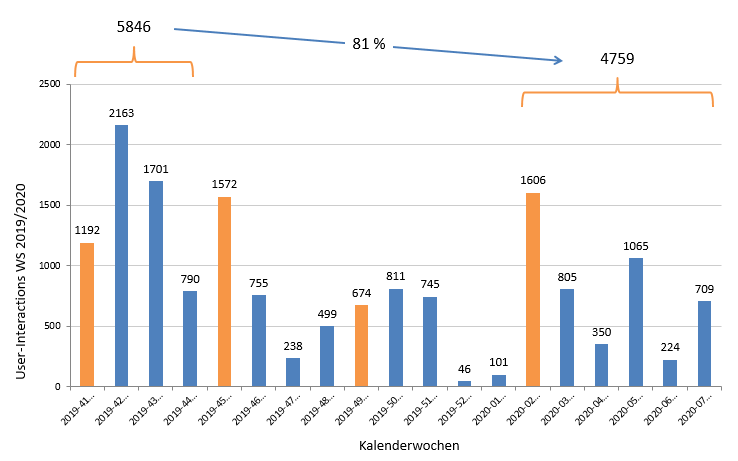
The Media Center's gOPAL team, in collaboration with the departments involved, has succeeded in developing a digital study service that systematically reduces the hurdles of the initial study phase and consistently takes into account the media usage behavior of the target group.
More about gOPAL: https://tud.de/deinstudienerfolg/sas
Contact: Dr. Helge Fischer, helge.fischer@tu-dresden.de

